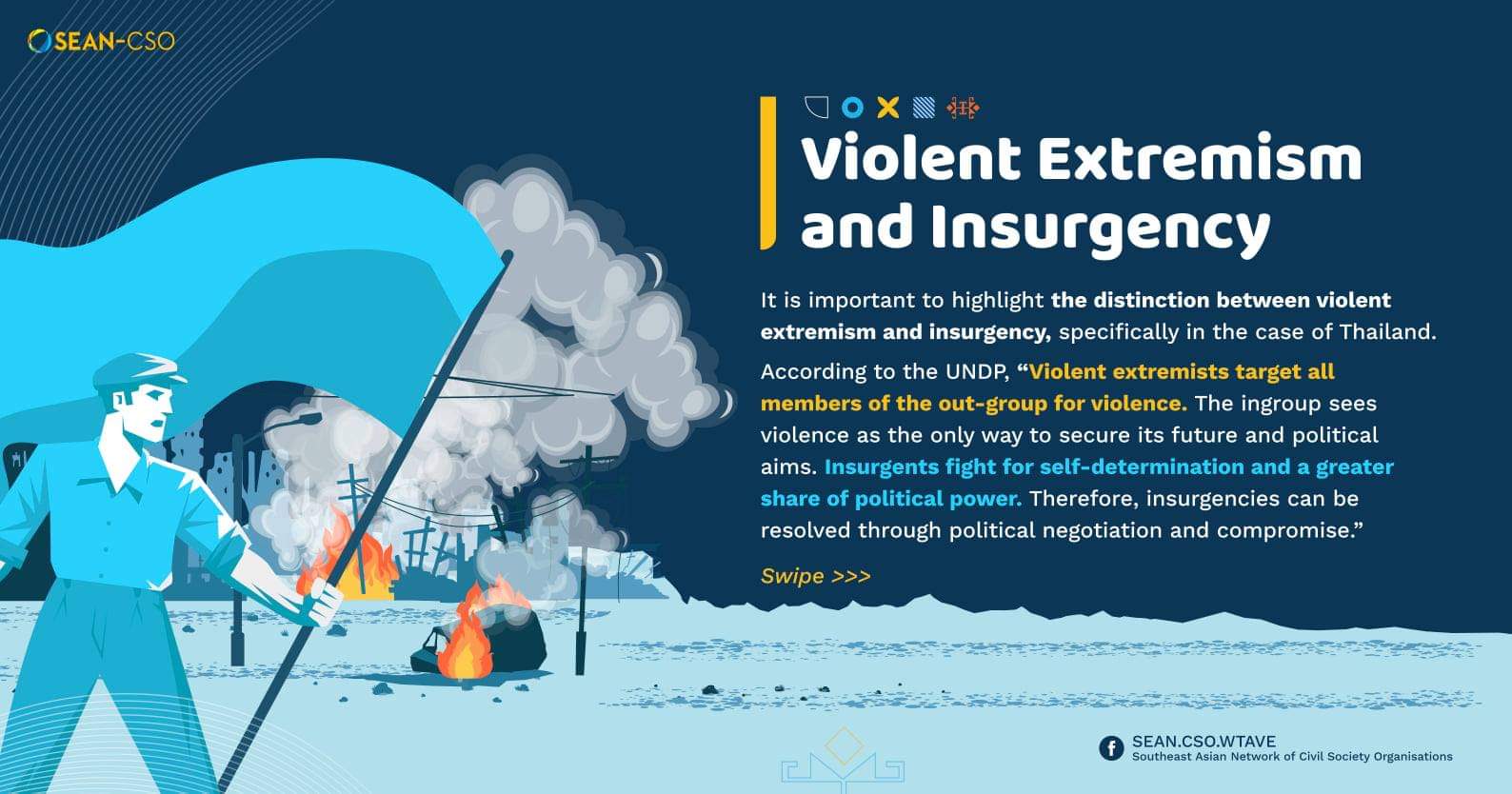It is important to highlight the distinction between violent extremism and insurgency, specifically in the case of Thailand.
According to the UNDP, “Violent extremists target all members of the out-group for violence. The ingroup sees violence as the only way to secure its future and political aims. Insurgents fight for self-determination and a greater share of political power. Therefore, insurgencies can be resolved through political negotiation and compromise.”
In southern Thailand, it often appears that there is strong potential for ISIS or al-Qaeda to exert influence due to the geopolitical complexities of the area. However, the Muslim separatists are primarily insurgents and nationalists. Their ultimate goal is to create an independent and autonomous state.
While that does not eliminate the risk of transnational jihadism taking root, the separatists and the jihadists are not ideologically aligned. If the Thai government and the separatists can come to a constructive agreement, it would greatly reduce the ability of jihadists to make inroads into the separatist circles.
Sources:
- “State of Violence: Government Responses to Violent Extremism in South-East Asia.” UNDP. 2020.
- “Country Reports on Terrorism 2019: Thailand.” US Department of State. June 24, 2020.
- “Thailand: Extremism and Terrorism.” Counter Extremism Project.
- “Jihadism in Southern Thailand: A Phantom Menace.” International Crisis Group. November 8, 2017.

